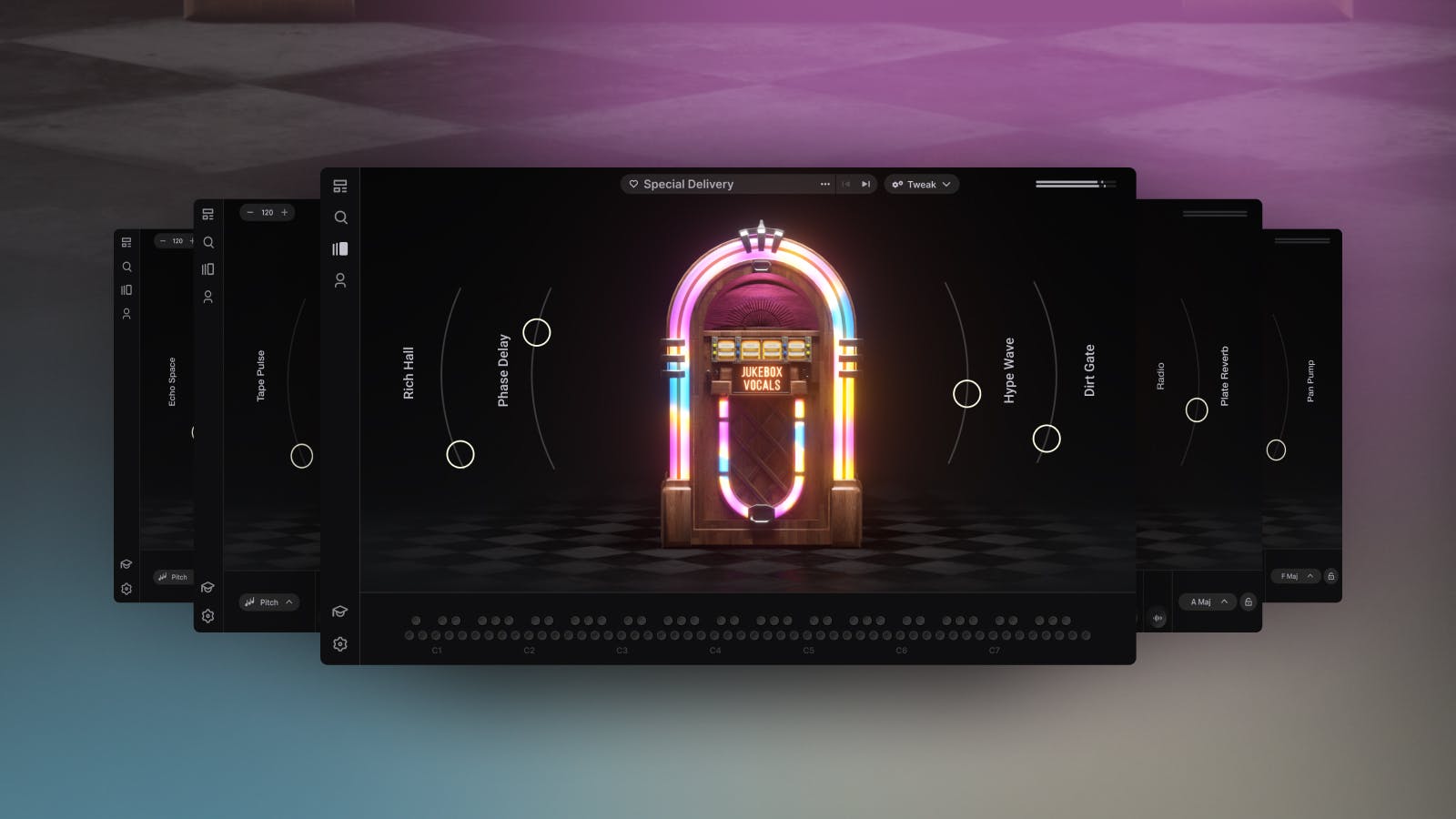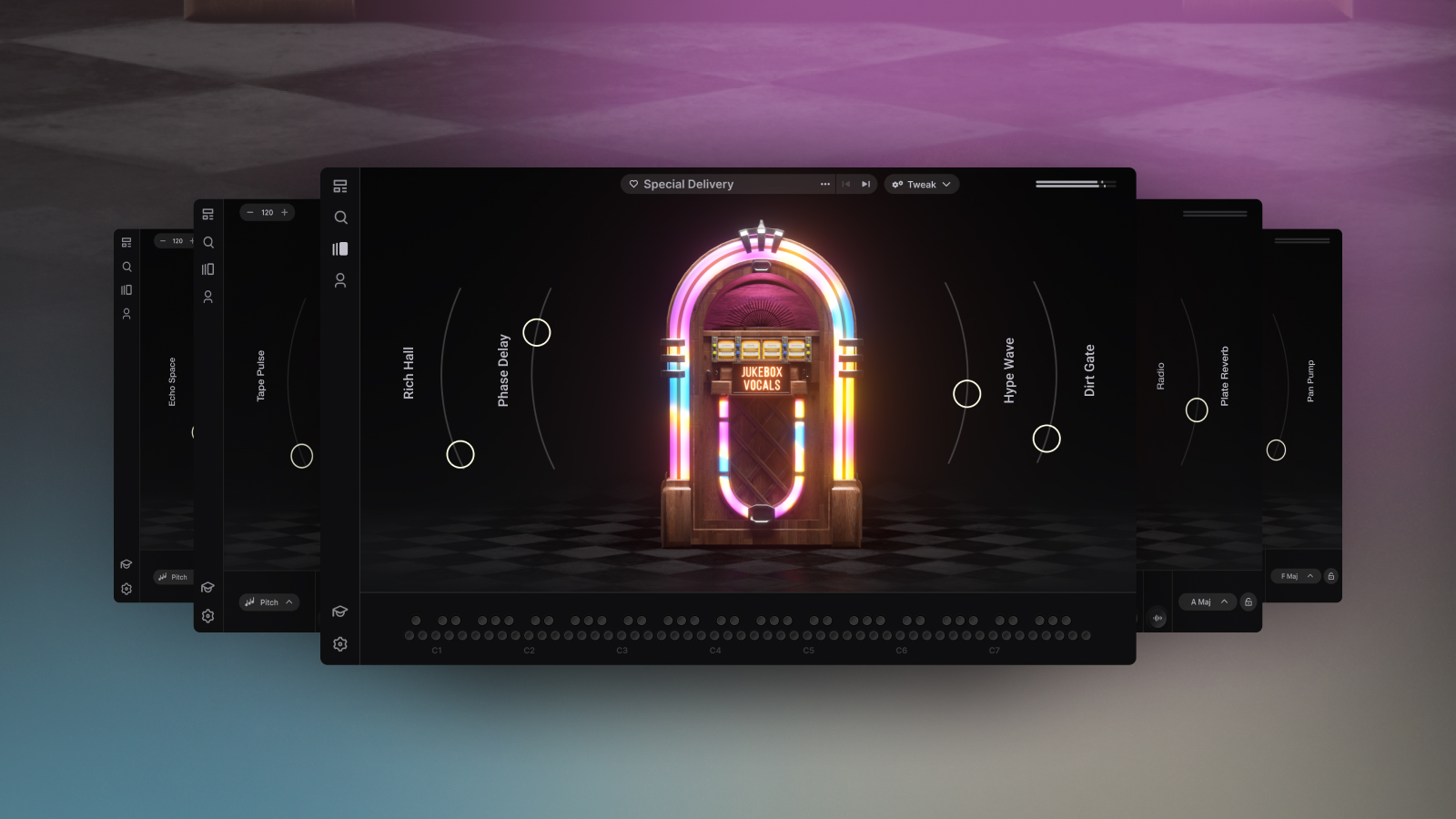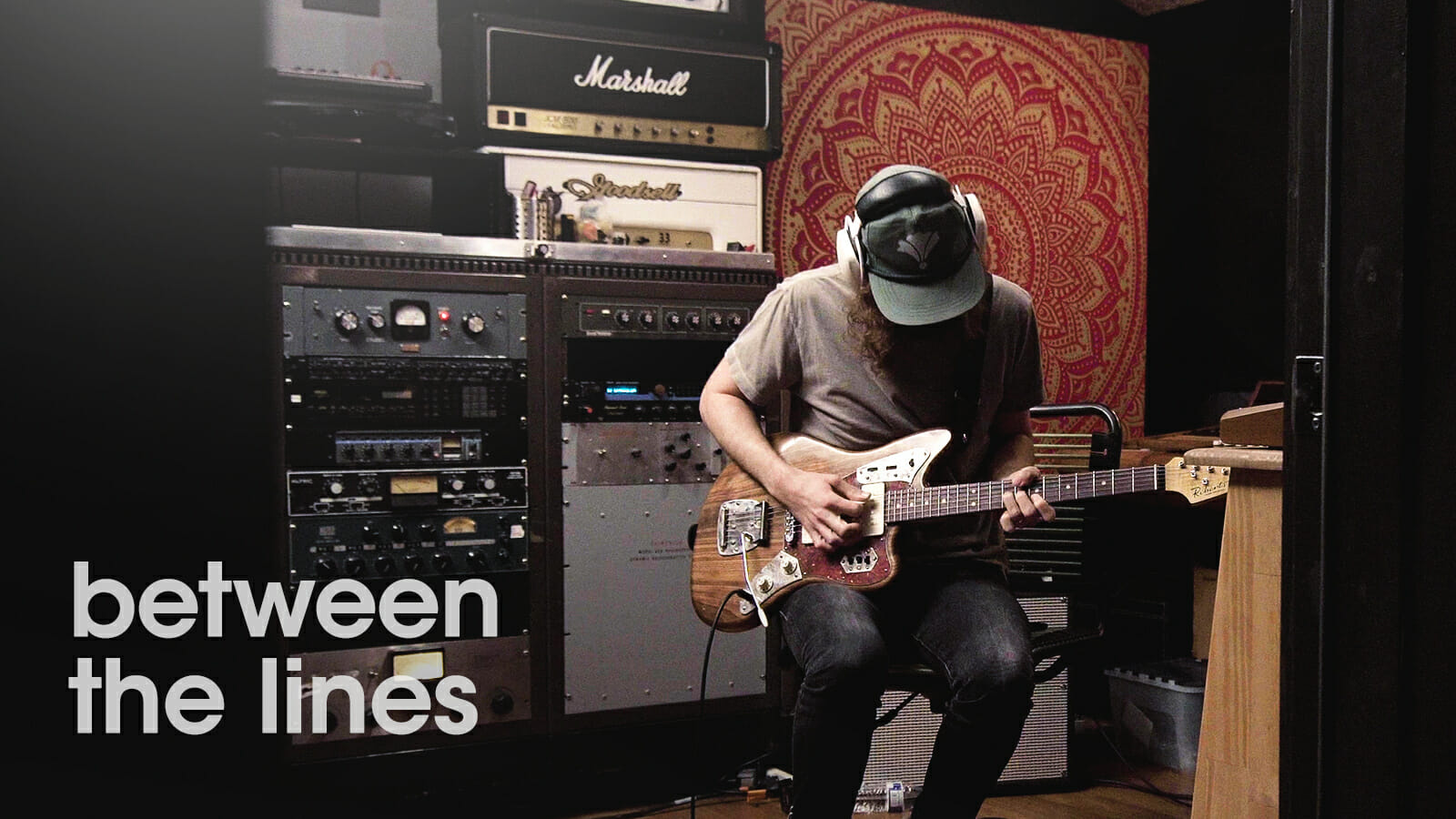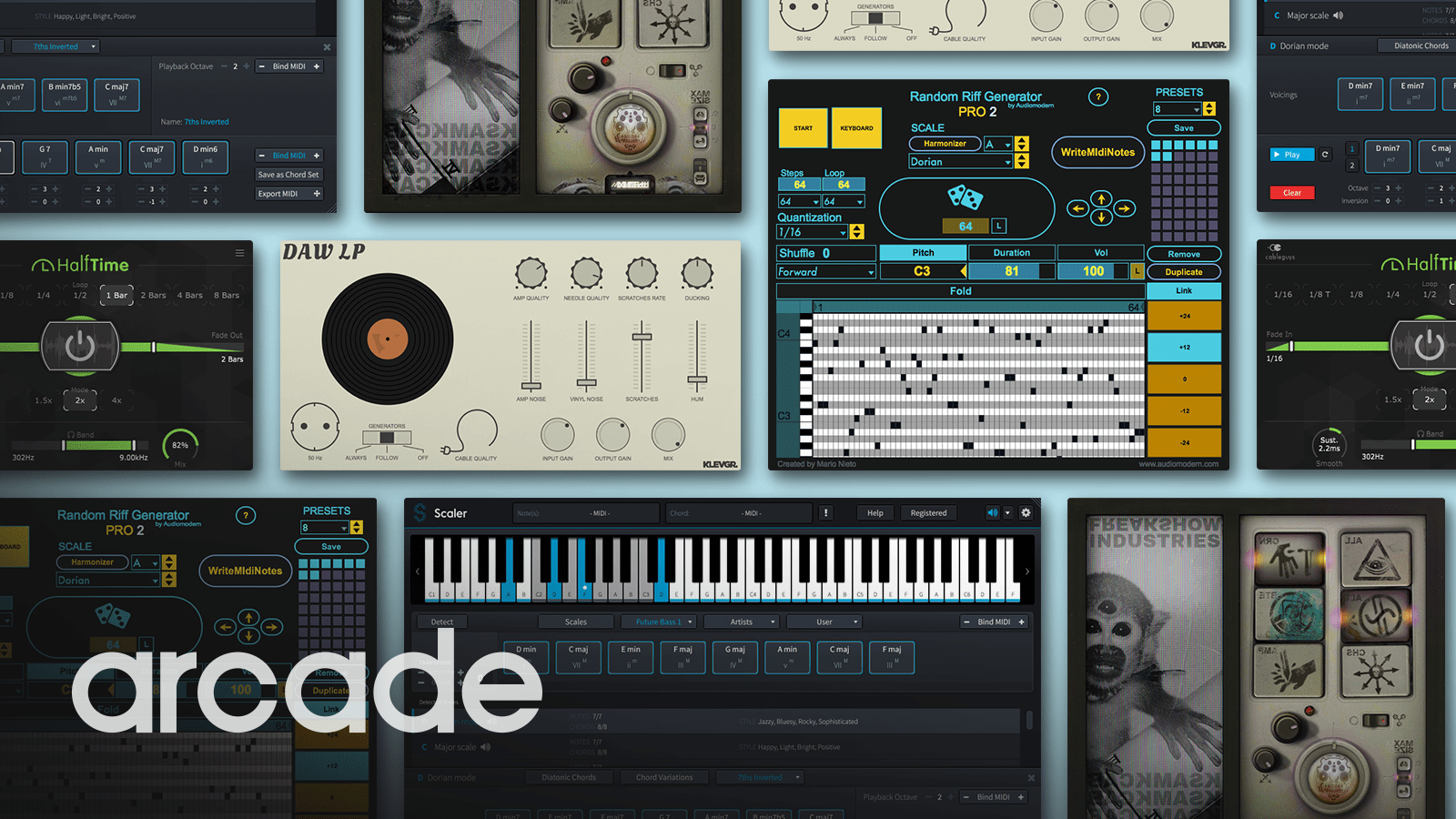
Output is proud to present the latest Line for Arcade: Jukebox Vocals. Take it back to the ‘50s and early ‘60s, when the wholesome vocal styles of doo-wop and soul met the beginnings of R&B and rock ‘n’ roll.
These new vocal Samplers and Instruments are inspired by an extraordinary period of American music history. Heading into the ‘60s, hitmakers in New York (and elsewhere) were honing the “Brill Building sound.” At the top of 1959, Detroit became home to Motown Records: the iconic label that would later go on to give the world Smokey Robinson, Stevie Wonder, Diana Ross, Marvin Gaye, and so many more legends.
These styles first became popular in the mid-20th century, but their influence can be felt everywhere in today’s radio hits and pop arrangements. Tracks like Silk Sonic’s “Leave the Door Open” and Kali Uchis’ “Feel Like a Fool” lean heavily on group vocals and harmony stacking to create a modern pop sound that’s indebted to the past.
Current Arcade subscribers can download Jukebox Vocals right now! Dive into these wonderful vocal leads, ad-libs, and harmony stacks to make your next track pop.
New subscribers can play Arcade with a free trial — get full access to 40+ Lines and tens of thousands of sounds! Try it now.
Doo-wop — a music style that originated in the ‘30s and ‘40s with early vocal groups such as the Ink Spots — is defined by its focus on vocals and group harmony, relatively minimal production, and lyrics about love and longing. These elements were absorbed into other styles, making doo-wop one of the important cornerstones of modern pop, R&B, and rock music.
Without doo-wop, so many pivotal genres would never have come to fruition the way they did. Today, you can hear the enduring influence of the genre most clearly in acts like Silk Sonic, who focus on charismatic vocal melodies and tight background harmonies:
Today, we’re taking a look at some of the biggest doo-wop-influenced bands and girl groups that defined the sound of mid-20th century American music. Along the way, we’ll explore their biggest hits and respective legacies.
The Teenagers
One of the earliest boy bands really were just that: boys. The Teenagers first came to prominence in 1956 with the release of their debut single, “Why Do Fools Fall in Love.” The song featured 14-year-old Frankie Lymon on lead vocals in a classic example of the doo-wop sound.
In later years, that song would be covered by acts like Diana Ross and the Beach Boys. The Teenagers’ boy band formula — with the youngest as lead singer — was then replicated by a little group called the Jackson 5.
The Miracles
The first successful group on the Motown Records roster, the Miracles were formed in the mid-’50s by five teens: Smokey Robinson, Pete Moore, Ronnie White, Bobby Rogers, and Claudette Rogers Robinson. Their first song, “Got a Job,” was released on Smokey Robinson’s 18th birthday. It kicked off an incredible run of Top 40 hits, including “You Really Got a Hold on Me” (later recorded by the Beatles). The Miracles’ vocal-centric influence on later R&B and rock is incalculable.
Need some backing vocals? Download the Jukebox Vocals Samplers “The Daily Grind” and “Weekend Romance” to tap into sweet vox layers for your own pop and R&B tracks!
The Marvelettes
After the Miracles took off for Motown, the first girl group to achieve similar success was the Marvelettes. You’ve no doubt heard their 1961 debut single, “Please Mr. Postman,” which was the first Motown song to hit no. 1 on the Billboard Hot 100. It then hit the top spot a second time when the Carpenters covered it in 1975(!), and continues to be an enduring hit to this day.
In a great example of how music is interpreted by later generations, “Please Mr. Postman” is also frequently sampled by contemporary artists. In 2021, rising rapper 2KBABY flipped the song on its head for his single, “Postman.”
Of course, not everyone can clear an iconic sample like that — But if you use Arcade’s bespoke sample library, you have full ownership of all the music you make! Twist and bend these Jukebox Vocals into your next hit.
The Crystals
At the beginning of the ‘60s, a five-member girl group called the Crystals signed to a young, enterprising producer named Phil Spector. In the first half of the decade, songs like “There’s No Other (Like My Baby),” “Uptown,” and “Da Doo Ron Ron” became huge hits, with production powered by Spector’s signature “wall of sound.” Along with another quintessential girl group, the Ronettes, the Crystals were a key part of the “Brill Building sound,” and an early career-defining project for the later ill-fated Spector.
The Supremes
The best-selling American girl group of all time, the Supremes got their start as a doo-wop group called the Primettes. After finishing high school, the group signed to Motown with the help of Smokey Robinson — and the rest is (quite literally) history. The trio of Diana Ross, Florence Ballard, and Mary Wilson are responsible for some of the biggest hits in the ‘60s, like “Where Did Our Love Go.”
Whether you’re making soulful disco or moody hip-hop: Check out the pristine vocal leads and harmonies in Jukebox Vocals’ Samplers and Instruments. Play it in Arcade today for free!
The Temptations
From the ashes of two doo-wop groups — the Primes and Distants — emerged the Temptations. It might be hard to believe now, but the Temptations had a rocky start after signing to Motown. It wasn’t until “The Way You Do the Things You Do” came out at the beginning of 1964 that the group started to gain any national traction. That same year, they put out another single, written and produced by the Miracles’ Smokey Robinson and Ronnie White: “My Girl.”
Want more awesome genre sounds? Check out the mind-bending drum, bass, and synth loops of Brain Waves, inspired by the Los Angeles beat scene.



